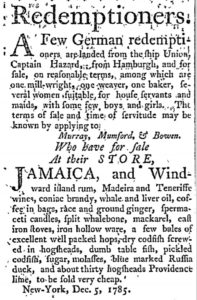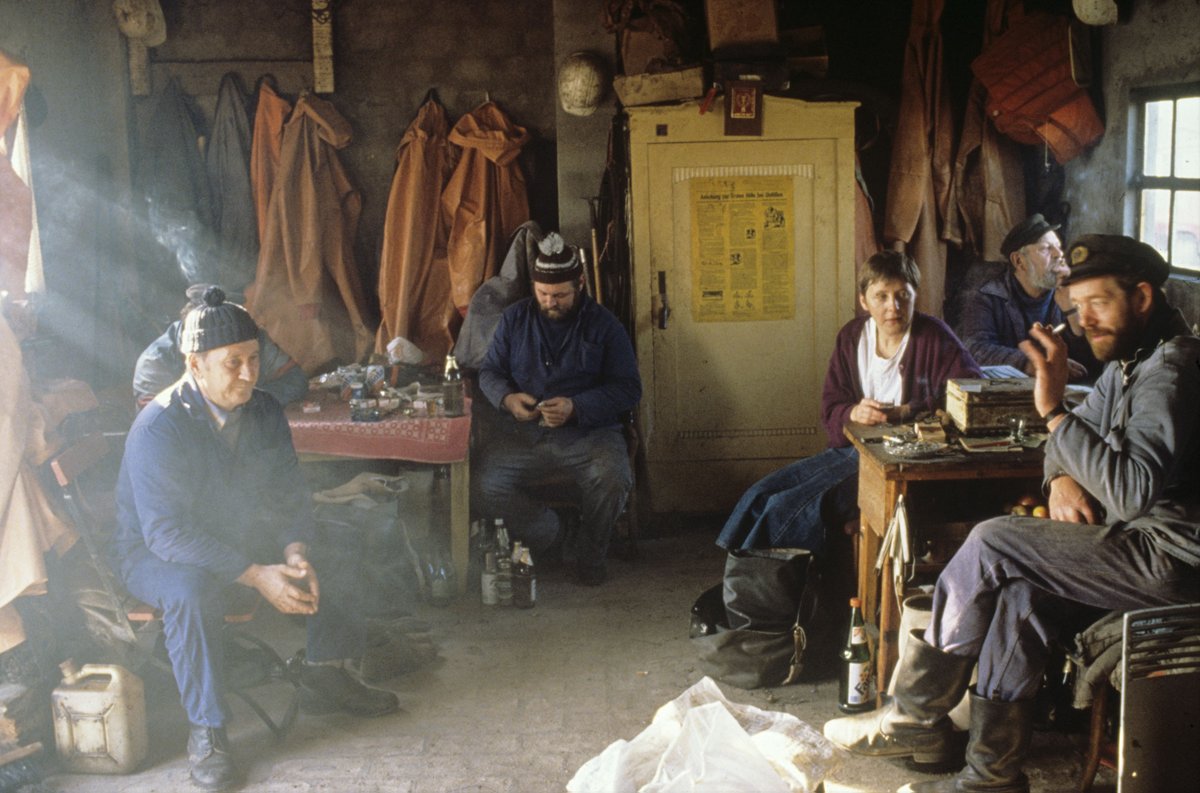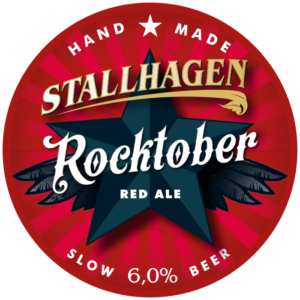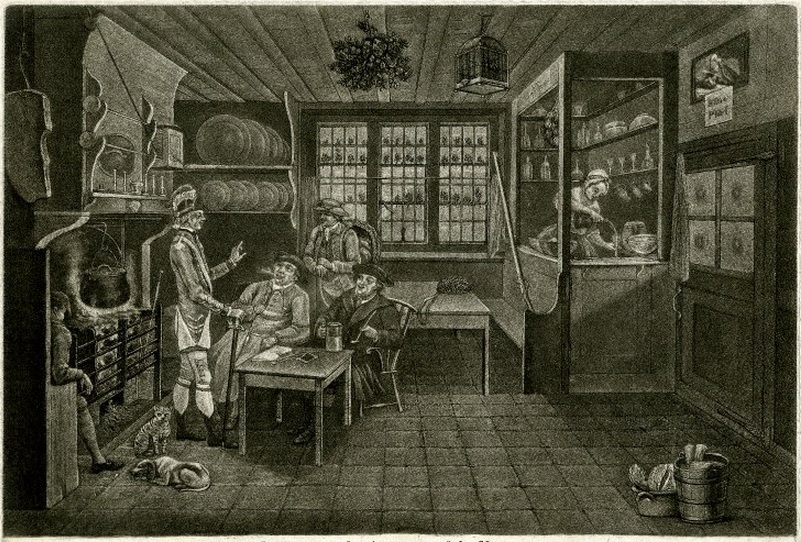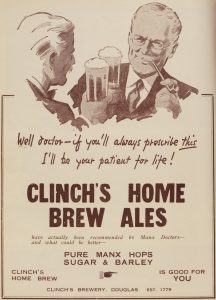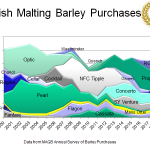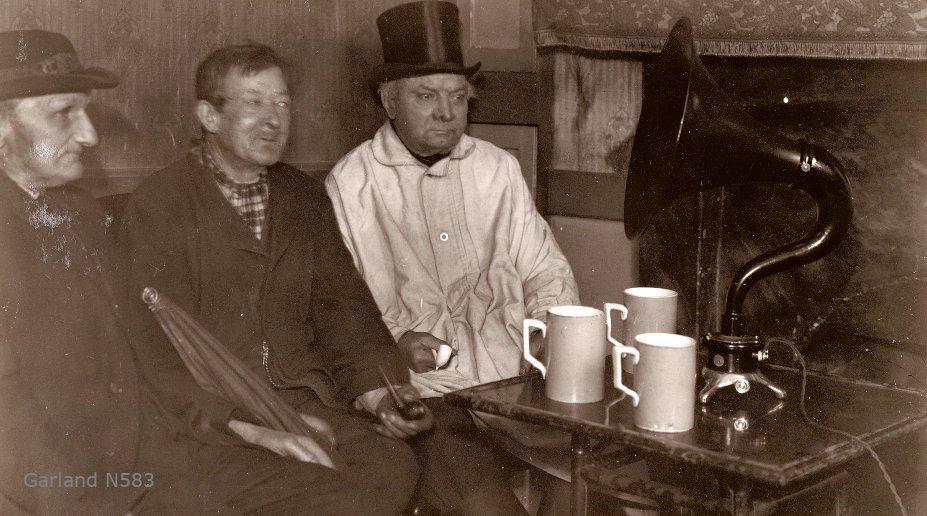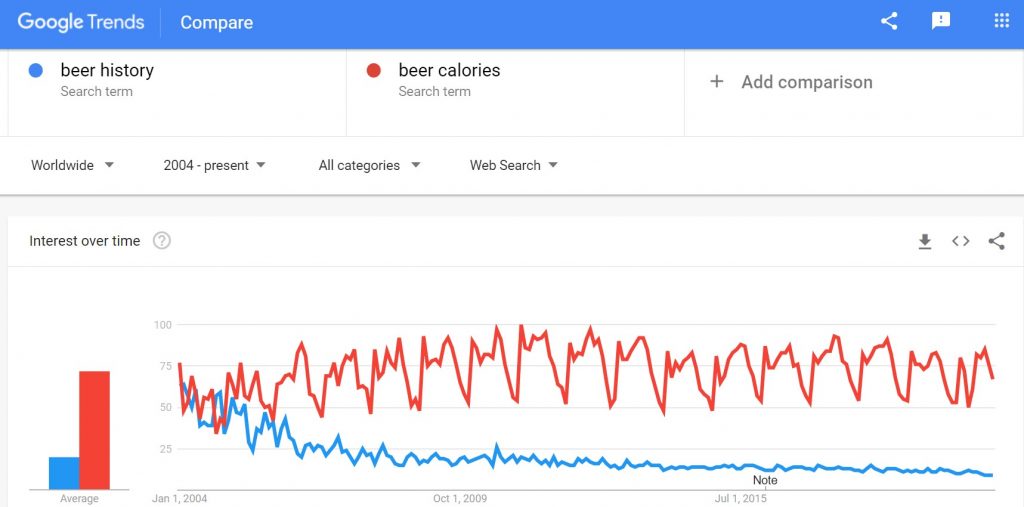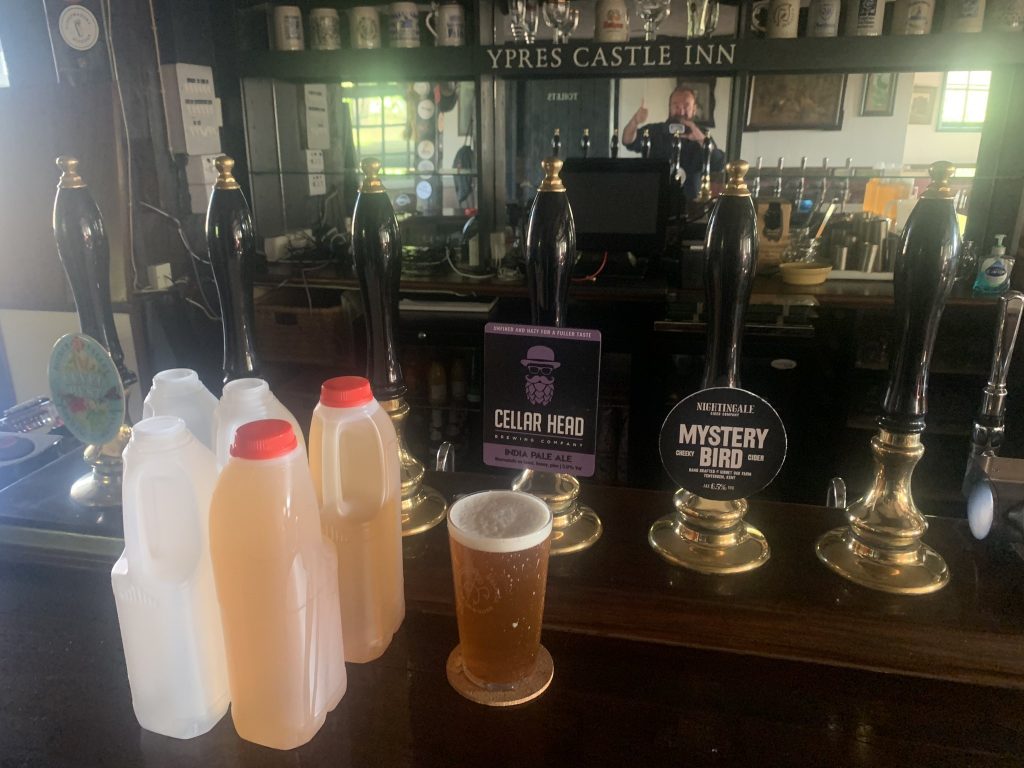Me.  Wednesday morning. I ran out into the backyard in my slippers to cover up the small Romaine plants before 8 am – given there was the dumbest rabbit ever out there, eating some weeds in the lawn about seven feet away from the finest dining he ever saw… if he were to ever see it. It seems it’s hard to get a good class of lawn rabbit these days. I may have triggered the neighbours’ yappy dog in the process. Jings. Life’s rich pageant or what? Breaks up the week, I suppose. It can be a bit of a challenge coming up with things to write about in the good beer world every week. Every once in a while interesting stuff pops up. For example, I had no idea that there was a Malting Barley Committee (MBC) of the Maltsters’ Association of Great Britain (MAGB) that issued edicts but late last week, care of Nigel‘s careful watch, we learned that they have made their decision on crops for the 2023 malting barley planting season. Say goodbye to the Splendor and Tungsten in your ales! As if you noticed…
Wednesday morning. I ran out into the backyard in my slippers to cover up the small Romaine plants before 8 am – given there was the dumbest rabbit ever out there, eating some weeds in the lawn about seven feet away from the finest dining he ever saw… if he were to ever see it. It seems it’s hard to get a good class of lawn rabbit these days. I may have triggered the neighbours’ yappy dog in the process. Jings. Life’s rich pageant or what? Breaks up the week, I suppose. It can be a bit of a challenge coming up with things to write about in the good beer world every week. Every once in a while interesting stuff pops up. For example, I had no idea that there was a Malting Barley Committee (MBC) of the Maltsters’ Association of Great Britain (MAGB) that issued edicts but late last week, care of Nigel‘s careful watch, we learned that they have made their decision on crops for the 2023 malting barley planting season. Say goodbye to the Splendor and Tungsten in your ales! As if you noticed…
It is Canada Day down Canada way… or at least it will be Friday. Eight years ago, I told the tale of how our Constitution of 1867 was first described to the leading lights of the future nation by a future Prime Minister. You can go read the whole thing but here is the portrait painted by one present of Sir John A. in his natural state:
…John A. entered bearing symptoms of having been on a spree. He was half drunk. Lunch is always on the side table, and he soon applied himself to it – and before we had well entered on the important business before us he was quite drunk with potations of ale…
Being as I am fascinated by all the tinkery clinkery bits of technology,  I had a read through the current online edition of Brewer Magazine, a trade journal that looks like an industry version of the old weekly newspaper that was 80% ads for members of the the downtown business association. Unlike the Gammy Bird, however, the ads seem to be real and are fairly interesting, especially this machine that would seem to be a robot that would take over the middle kid’s 2019 summer job, smashing out of date cans of beer out back of the contract brewery. I could never figure out if it was a good job or not. I suppose being covered in stale malty good spraying from smashed cans on 33C high humidity days may not be exactly how one wants to take one’s ale.
I had a read through the current online edition of Brewer Magazine, a trade journal that looks like an industry version of the old weekly newspaper that was 80% ads for members of the the downtown business association. Unlike the Gammy Bird, however, the ads seem to be real and are fairly interesting, especially this machine that would seem to be a robot that would take over the middle kid’s 2019 summer job, smashing out of date cans of beer out back of the contract brewery. I could never figure out if it was a good job or not. I suppose being covered in stale malty good spraying from smashed cans on 33C high humidity days may not be exactly how one wants to take one’s ale.
Q: is booze collapsing all around? Not in Illinois. Josh Noel wrote about in The Chicago Tribune (perhaps paywalled) wrote an excellent piece about Dovetails’ kolsch service in the Windy City:
While it may not be surprising to find a brewery such as Dovetail, dedicated to reproducing continental European beer styles, also reproducing European beer culture, there has been an unlikely development in Chicago since Dovetail’s first kolsch service in 2019: other breweries have also started doing it. Logan Square’s Hopewell Brewing hosted two kolsch nights in spring, and Double Clutch Brewing, which opened last fall in Evanston, has also done it.
In his mastery of the thing all the beer experts foolishly tell beer writers never to do, The Beer Nut displayed all his skills this week in his considerations of one of my all time favourite beers, Jolly Pumpkin‘s Bam, first encountered around 15 years ago. The resulting observations should serve as a bit of a life lesson for the rest of all you all:
It’s a medium orange-yellow in the glass and quite opaque. The aroma is a fun mix of fruit salad — with pear, mandarin and lychee in particular — meeting a very Belgian saison spicing and a lacing of farmyard fun. That’s a lot of complexity already for something that’s only 4.5% ABV. There’s a floral, perfume intensity in the foretaste, mixing bergamot and lavender with softer white grape. The body is quite thin and that renders the flavour a little harsh, accentuating the bitterness. It’s still very tasty, though. There’s too much going on for it to be refreshing, but it still just about works as a sipper.
Notice the use of observe fact and clear language. No reference to chemistry puffery and not burdened by style. As I read recently, observation defeats theory every time. Or something like that. The human sensory experience laid out plain.
Again with the use of personal eyeball powers, I would never have guessed that beer pub ticking was a jet-setter sort of function but there we are, the lad with the guide in the carry on luggage on an aircraft cabin flying over salty seas:
Right, if you’ve an allergy to the Channel Islands I should come back to this blog in, ooh, October. Twenty-three GBG entries for 170,499 islanders, and I needed ten (10) ticks for the set, having not set foot there since 2014 (before this blog started). If I’m going to finish the Guide this year, I needed to get those ten done in one trip. Nipping back to Sark for one pub in September is far harder than nipping back to Sandwich, and costs ten times as much.
Also: Auld Mudgie linked to a blog of a wandering pub lover that I had not noticed before, Merseyside Pub Guide.
Alistair triggered the sort of interesting discussion that Twitter is still letting you have – this time about the lack of actual special glassware utility, one of those old chestnuts in beer. Best comment? From Max:
I must add the glass I used for smaller servings is the same I use for wines, brandy, and whisky. I got it after judging at a beer competition (which uses the same glass for all styles, go figure).
Similarly, see this consideration of the role of Brett v hops in the transportation of strong ale long distances yoinks ago. So much more interesting information comes out of discussions backed by solid records.
Conversely, we had a sighting of the content control clique movement this week. Same as 2009 and 2016, arises in times of crisis. In the hardscrabble ill-considered beer writing trade, this tendency is sorta like the anti-Christ of the weekly beery news roundups. Leads to bizarre results. Deny the call to obey! Good thing Lew is on the job.
And, yes, the creative if not needy spins on the sale of Stone to mega brewing was the theme of the week amongst a certain set. Beth Demmon, as usual, offered the perspective with the clearest view from a local vantage point:
… this type of deal is a well-worn path. Big business-buys-smaller business in a seemingly mutually beneficial, nine-figure deal. Life goes on, capitalism lives to see another day.
This set of quotes from those attending these days of remembrance is hilarious. Not one using the phrase “decades long cluster fuck!” As noted in 2004, likely the seminal makers of sucker juice. Jordan and Robin prodded the corpse, heroically finding the energy this week to care enough to discuss what are effectively the two stale assets of apparently no value in the Stone deal: (i) the face of the business and (ii) the long term business plan. Neither now needed. Isn’t the deal just a fire sale to avoid further losses if the long descent from the core business as a premium gas station brand allowed to continue further?
Finally – and in a more fact based reality – beer snakes!
Yorkshire’s decision to ban beer snakes, the comically long stacks of empty pint pots so beloved of cricket fans, forced luminous-jacketed stewards to engage in a series of slow-motion chase scenes with unruly cup-collectors, one of whom was amateurishly but unmistakably disguised as Scooby Doo. The England team have been restyled as great entertainers but the fans’ response has been: hold my empty beer. And also this one. And several dozen more. And now run! These races were surprisingly hilarious – though clearly not for the stewards, who, by tea, had completely given up…
That is it! For more, check out the updates from Boak and Bailey mostly every Saturday but not from Stan every Monday as he is on his summer holiday. Check out the weekly Beer Ladies Podcast, and at the weekly OCBG Podcast on Tuesday (Ed.: me finks the teens are hired for fests because that is all the can afford as the dream of craft continues to collapse…) and sometimes on a Friday posts at The Fizz as well. There is a monthly sort of round up at The Glass. (Ed.: that seems to be dead now.) There is more from DaftAboutCraft‘s podcast, too. And the Beervana podcast. And sign up for Katie’s (Ed.: now very) irregular newsletter, The Gulp, too. And check out the Atlantic Canada Beer Blog‘s weekly roundup. Plus follow the venerable Full Pint podcast. And Fermentation Radio with Emma Inch. The AfroBeerChick podcast as well! And also look at Brewsround and Cabin Fever. And Ben has his own podcast, Beer and Badword (Ed.: …notice of revival of which has been given… still not on the radio dial…) And remember BeerEdge, too, and The Moon Under Water. There has also been the Beer O’clock Show but that’s now winding up after ten years.

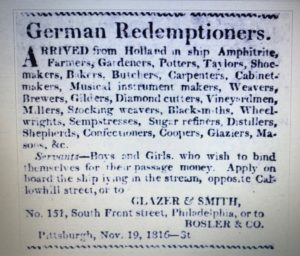 Over five years ago now I wrote the last of a
Over five years ago now I wrote the last of a 